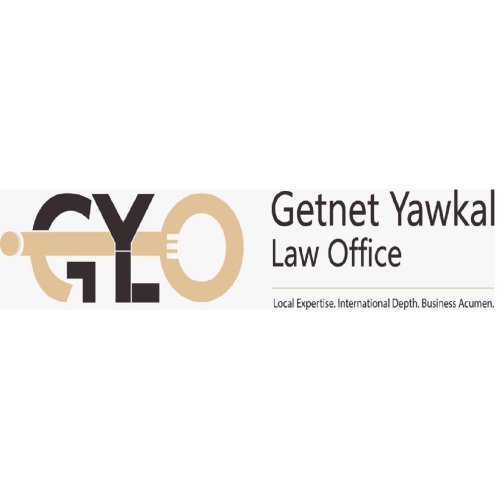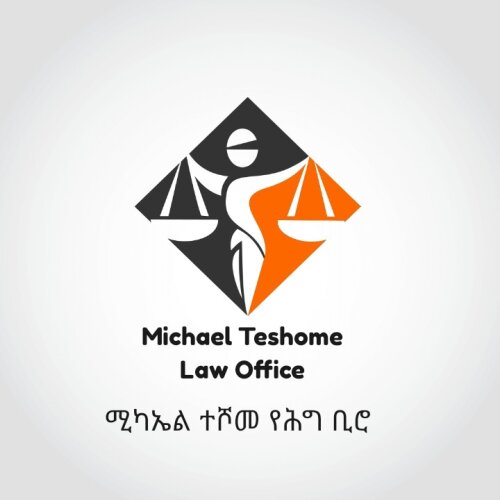Best Investment Lawyers in Ethiopia
Share your needs with us, get contacted by law firms.
Free. Takes 2 min.
Or refine your search by selecting a city:
List of the best lawyers in Ethiopia
About Investment Law in Ethiopia
Investment in Ethiopia is governed by various legal frameworks designed to attract foreign investors and stimulate economic growth. The Ethiopian Investment Commission (EIC) is the key governmental body that oversees and regulates investment activities in the country. The Investment Proclamation and regulations provide a comprehensive legal basis for both foreign and domestic investment. The Ethiopian government has prioritized sectors such as agriculture, manufacturing, and infrastructure to encourage investment. Recent reforms have improved the investment climate, offering incentives like tax holidays and duty-free import of capital goods.
Why You May Need a Lawyer
Engaging a lawyer specializing in investment law in Ethiopia can be beneficial in several situations:
- Navigating complex regulatory requirements and compliance issues.
- Structuring investment projects to optimize tax benefits and incentives.
- Negotiating and drafting contracts with local stakeholders.
- Addressing disputes or challenges in investment transactions.
- Understanding and securing land use rights.
- Conducting due diligence for mergers, acquisitions, or joint ventures.
Local Laws Overview
Several key aspects of local laws are particularly relevant to investors in Ethiopia:
- Investment Proclamation: Establishes the legal framework for private investment, detailing areas open for foreign investment and sectors reserved for domestic investors.
- Tax Laws: Provide incentives such as reduced corporate income tax rates for prioritized sectors and regions.
- Land Laws: Outlines the rights and processes for acquiring land for industrial and investment purposes.
- Employment Laws: Governs labor relations, including hiring, worker rights, and conditions of employment.
- Business Licensing: Details the procedures for obtaining licenses to operate different types of businesses.
Frequently Asked Questions
What sectors are open for foreign investment in Ethiopia?
Many sectors are open for foreign investment, including agriculture, manufacturing, infrastructure, energy, and tourism. Certain financial and telecommunications sectors have restrictions.
What incentives are available for foreign investors in Ethiopia?
Incentives include tax holidays, customs duty exemptions on capital goods, and access to industrial parks with developed infrastructure.
Can foreign investors lease land in Ethiopia?
Yes, foreign investors can lease land through agreements with regional land bureaus. The government facilitates leasing for projects that provide significant economic benefits.
Is there a minimum capital requirement for foreign investment?
Yes, a minimum capital of USD 200,000 for a single investment project is generally required for foreign investors.
How are investment disputes resolved in Ethiopia?
Investment disputes can be resolved through arbitration, litigation, or negotiation. The Ethiopian Investment Commission may also facilitate dispute resolution.
What are the regulatory bodies overseeing investment in Ethiopia?
The Ethiopian Investment Commission (EIC) and regional investment offices are primarily responsible for regulating and facilitating investments.
Are there restrictions on repatriation of profits for foreign investors?
No, foreign investors can repatriate profits and dividends after fulfilling local tax and financial obligations.
How long does it take to register a new business in Ethiopia?
The business registration process typically takes a few days to a few weeks, depending on the complexity and type of business.
What labor laws should investors be aware of in Ethiopia?
Labor laws cover aspects such as minimum wage, work hours, health and safety, and termination conditions. Compliance with these laws is mandatory.
Can foreign investors access finance through local banks?
Yes, foreign investors can access financing through local banks, although terms and availability may vary based on the sector and project scale.
Additional Resources
Here are some resources and organizations that can provide further assistance and information:
- Ethiopian Investment Commission (EIC): The primary body responsible for promoting and facilitating investment in Ethiopia.
- Chambers of Commerce: Help businesses navigate the regulatory environment and provide networking opportunities.
- Ministry of Revenue: Offers guidance on tax obligations and available incentives for investors.
- Ministry of Trade and Regional Integration: Provides information on trade policies and business licensing.
Next Steps
If you need legal assistance in investment, consider the following steps:
- Conduct thorough research to identify reputable law firms or lawyers specializing in investment law in Ethiopia.
- Schedule consultations with potential legal advisors to discuss your investment plans and challenges.
- Prepare detailed documentation of your investment project, including business plans and financial forecasts, to facilitate discussions with legal advisors.
- Engage a lawyer to assist with structuring your investment, compliance with local laws, and negotiation with partners and stakeholders.
Lawzana helps you find the best lawyers and law firms in Ethiopia through a curated and pre-screened list of qualified legal professionals. Our platform offers rankings and detailed profiles of attorneys and law firms, allowing you to compare based on practice areas, including Investment, experience, and client feedback.
Each profile includes a description of the firm's areas of practice, client reviews, team members and partners, year of establishment, spoken languages, office locations, contact information, social media presence, and any published articles or resources. Most firms on our platform speak English and are experienced in both local and international legal matters.
Get a quote from top-rated law firms in Ethiopia — quickly, securely, and without unnecessary hassle.
Disclaimer:
The information provided on this page is for general informational purposes only and does not constitute legal advice. While we strive to ensure the accuracy and relevance of the content, legal information may change over time, and interpretations of the law can vary. You should always consult with a qualified legal professional for advice specific to your situation.
We disclaim all liability for actions taken or not taken based on the content of this page. If you believe any information is incorrect or outdated, please contact us, and we will review and update it where appropriate.
Browse investment law firms by city in Ethiopia
Refine your search by selecting a city.

















